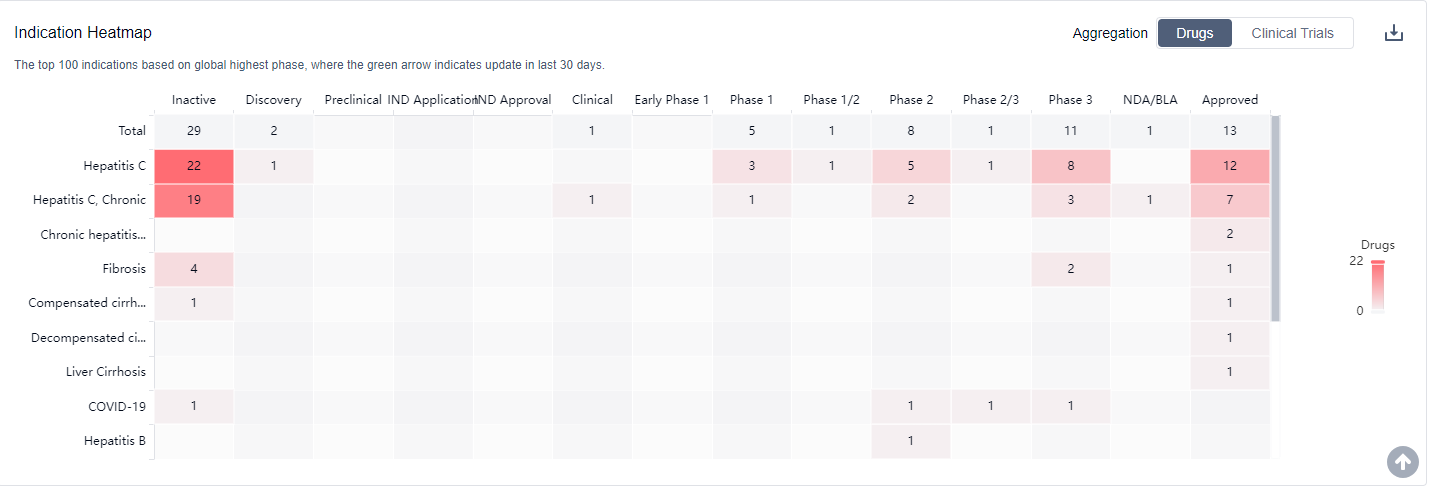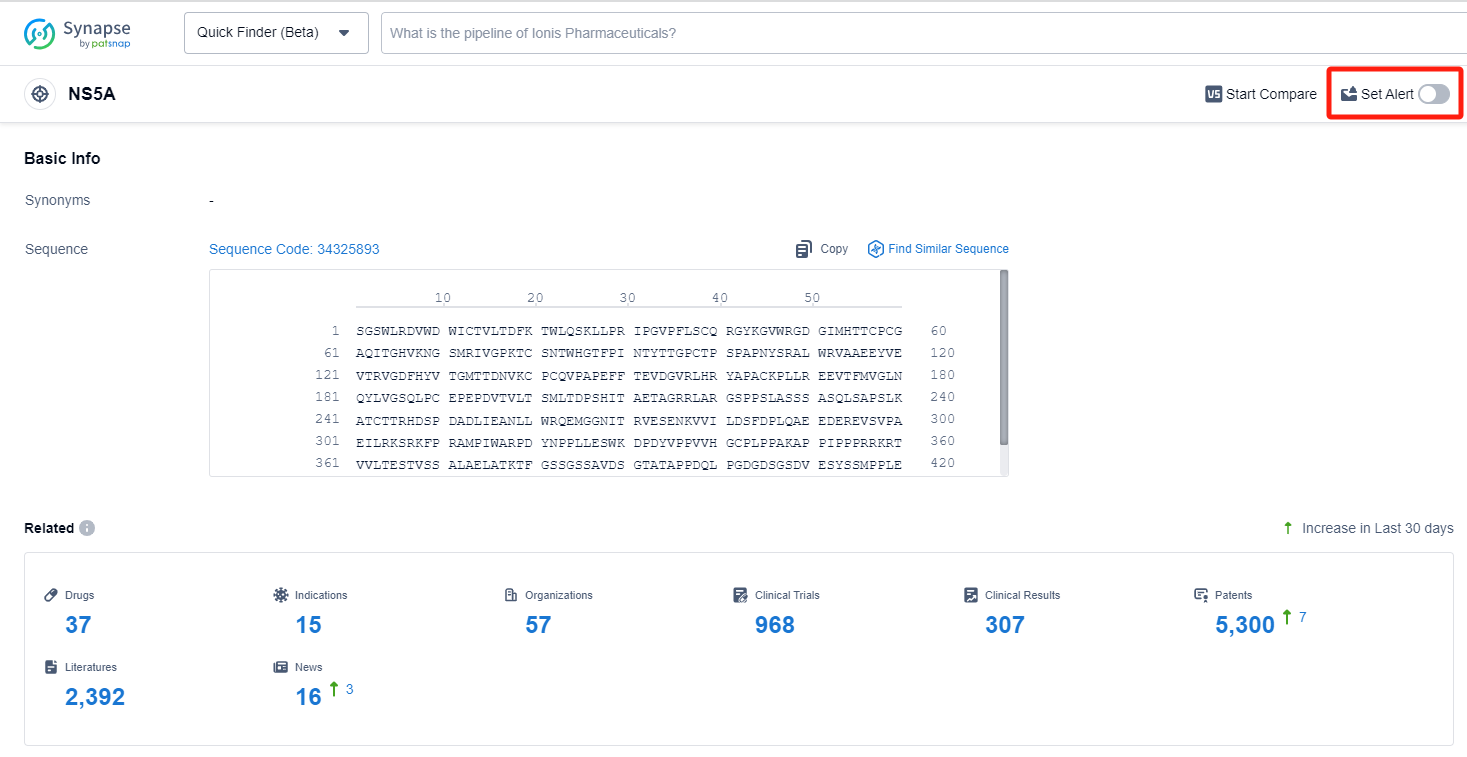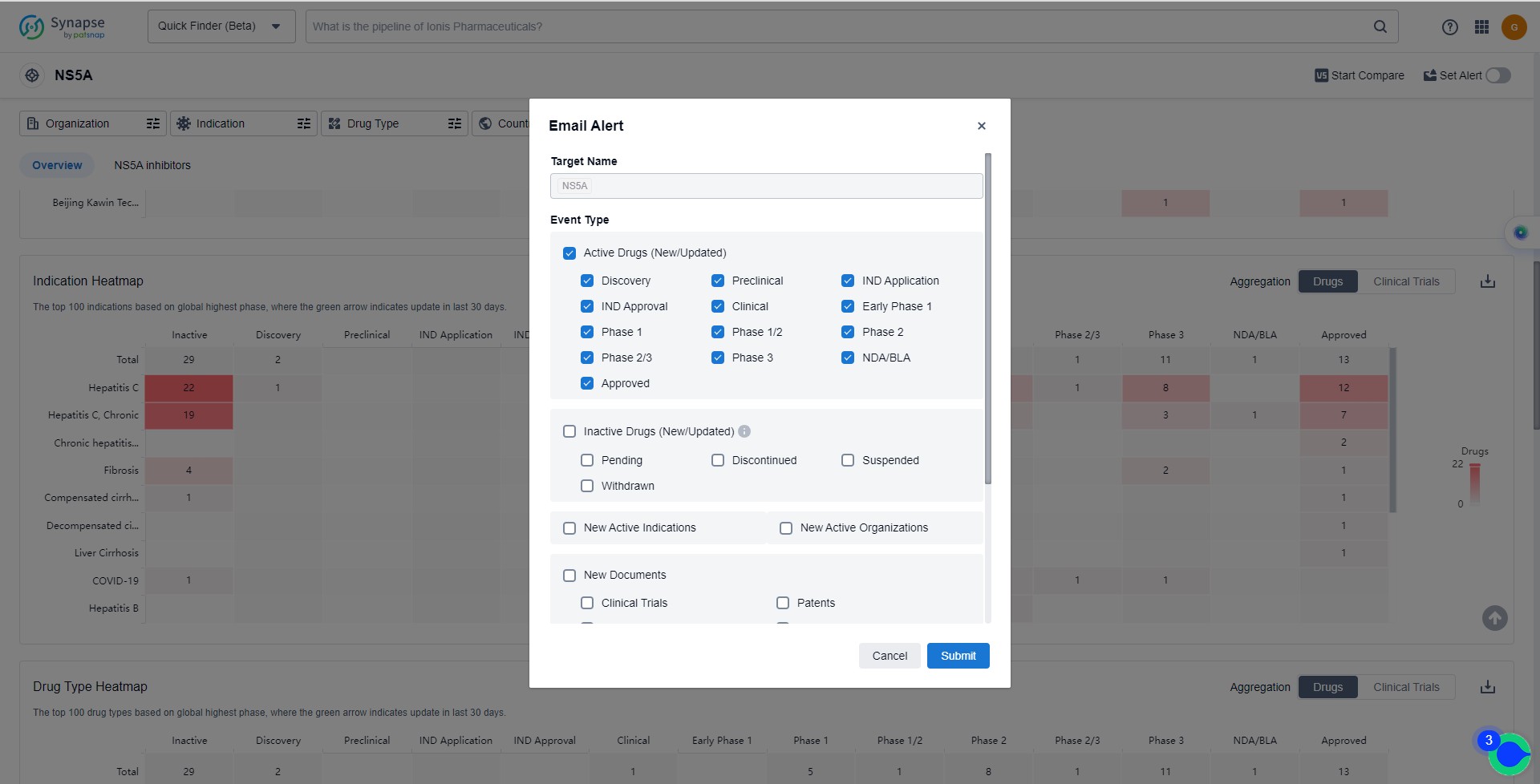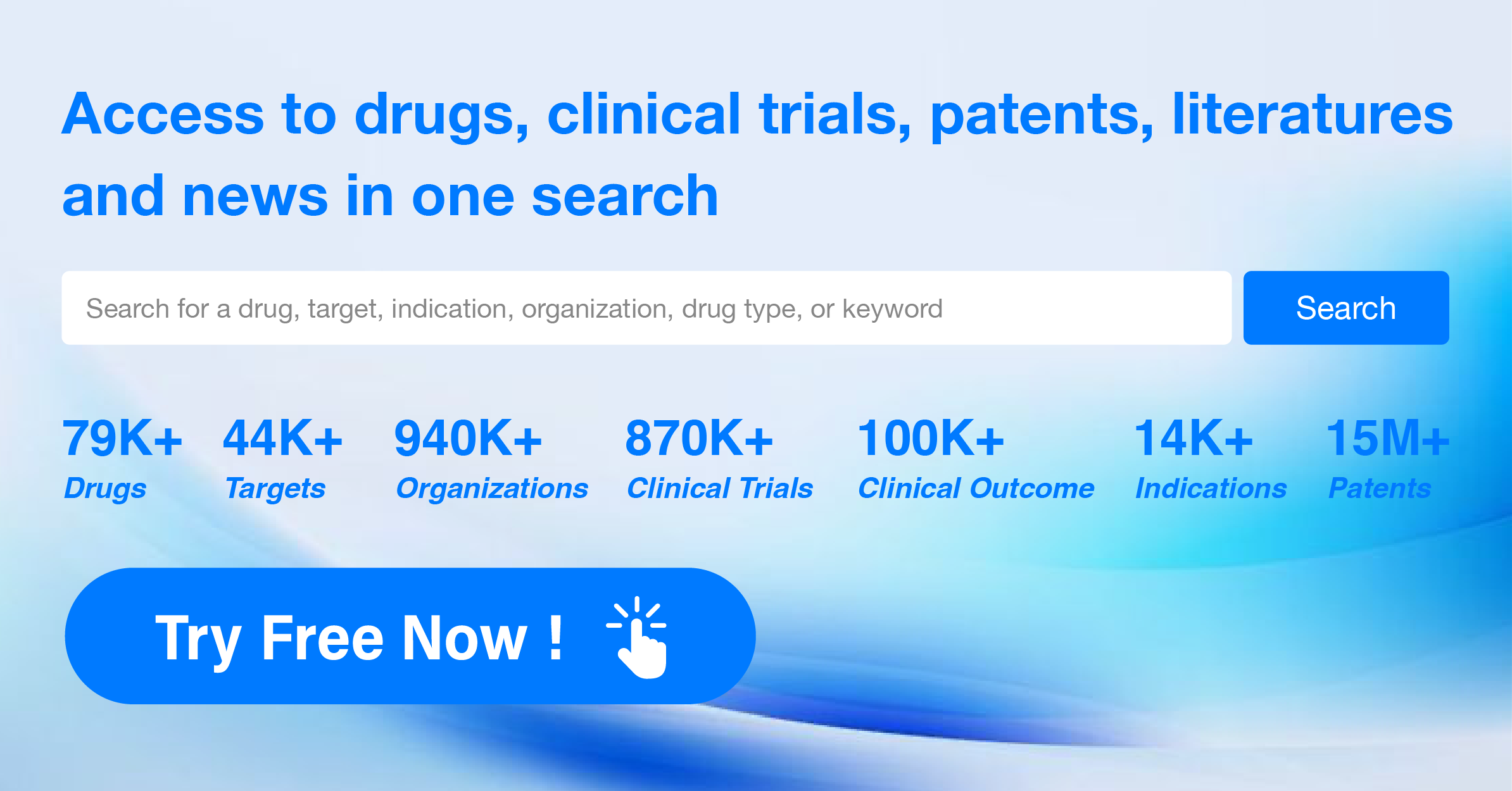What are NS5A inhibitors and how do you quickly get the latest development progress?
NS5A is a crucial protein found in the human body that plays a significant role in the life cycle of the hepatitis C virus (HCV). It is involved in viral replication, assembly, and release, making it an attractive target for antiviral therapies. NS5A interacts with various host proteins and cellular pathways, modulating the immune response and promoting viral persistence. Inhibiting NS5A can disrupt HCV replication, leading to reduced viral load and improved clinical outcomes. Understanding the function of NS5A is essential for developing effective treatments against HCV and combating the global burden of this infectious disease.
The analysis of the current competitive landscape of target NS5A reveals that Gilead Sciences, Inc., AbbVie, Inc., and Merck & Co., Inc. are the leading companies in terms of R&D progress. These companies have drugs in multiple phases of development, including the approved phase. The indication analysis shows that drugs under the target NS5A have been approved for various indications related to Hepatitis C, Fibrosis, Cirrhosis, and other diseases. The drug types progressing most rapidly are small molecule drugs and synthetic peptides, indicating intense competition in the market. China is a significant player in the development of drugs targeting NS5A, with the highest number of drugs in the approved phase. Other countries such as Japan, European Union, and the United States also have a considerable presence in the development of NS5A drugs.
The future development of target NS5A is promising, with ongoing research and development by various companies and institutions. The competition in the market is expected to intensify, especially for small molecule drugs and synthetic peptides. Further advancements in the treatment of Hepatitis C and other related indications can be expected with the continued efforts of the pharmaceutical industry.
How do they work?
NS5A inhibitors are a type of antiviral medication that target the NS5A protein in the hepatitis C virus (HCV). From a biomedical perspective, these inhibitors work by blocking the function of the NS5A protein, which is essential for viral replication and assembly. By inhibiting NS5A, these drugs help to prevent the spread and multiplication of the hepatitis C virus in the body.
NS5A inhibitors are commonly used in combination with other direct-acting antiviral drugs to treat chronic hepatitis C infection. They have shown high efficacy in achieving sustained virologic response (SVR), which means that the virus is undetectable in the blood six months after completing treatment. These inhibitors have revolutionized the treatment of hepatitis C, offering shorter treatment durations, improved tolerability, and higher cure rates compared to older therapies.
It's important to note that NS5A inhibitors are specific to the treatment of hepatitis C and are not used for other viral infections or diseases. They are typically prescribed by healthcare professionals and should be taken as directed to ensure optimal treatment outcomes. Common examples of NS5A inhibitors include ledipasvir, daclatasvir, and ombitasvir.
List of NS5A Inhibitors
The currently marketed NS5A inhibitors include:
- Emitasvir Phosphate
- Ravidasvir Hydrochloride
- Coblopasvir hydrochloride
- Glecaprevir/Pibrentasvir
- Glecaprevir/Pibrentasvir
- Elbasvir
- Sofosbuvir/Velpatasvir
- Elbasvir/Grazoprevir
- Ombitasvir/Paritaprevir/Ritonavir
- Ledipasvir/Sofosbuvir
For more information, please click on the image below.
What are NS5A inhibitors used for?
NS5A inhibitors are commonly used in combination with other direct-acting antiviral drugs to treat chronic hepatitis C infection. For more information, please click on the image below to log in and search.
How to obtain the latest development progress of NS5A inhibitors?
In the Synapse database, you can keep abreast of the latest research and development advances of NS5A inhibitors anywhere and anytime, daily or weekly, through the "Set Alert" function. Click on the image below to embark on a brand new journey of drug discovery!








